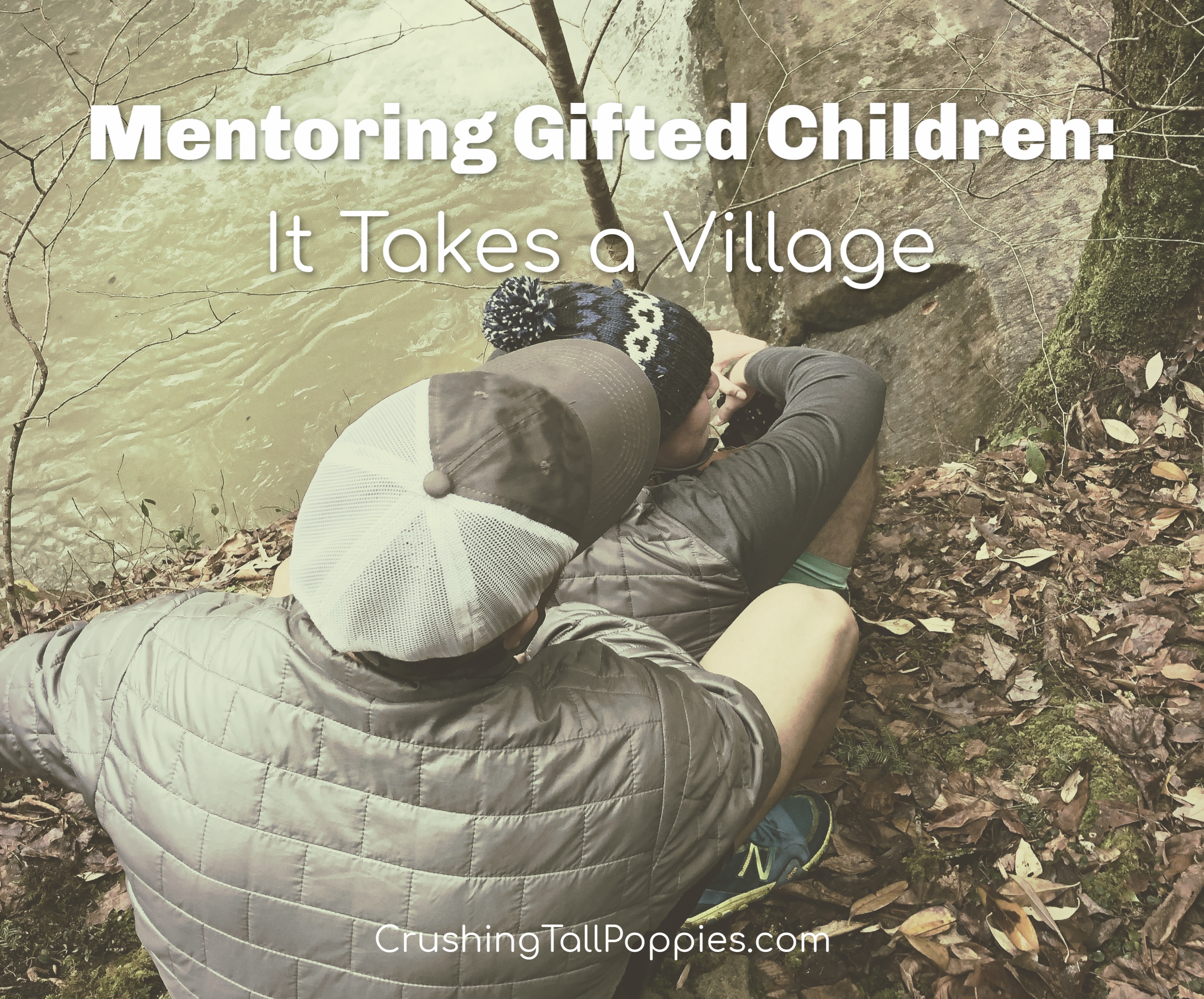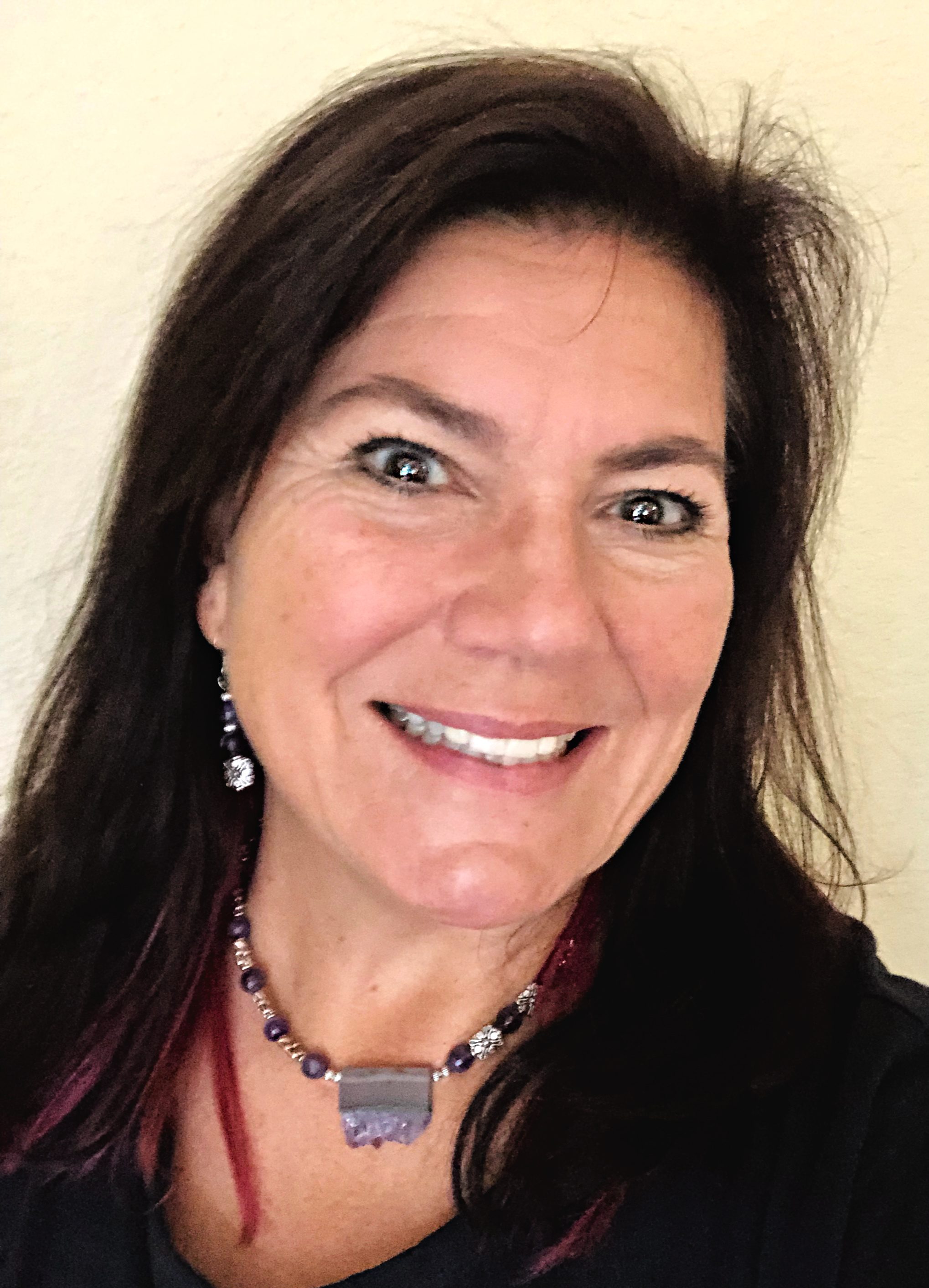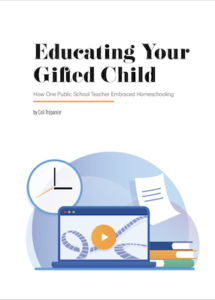Mentoring Gifted Children: It Takes a Village

Emile, a 13-year old, hates school and is convinced he can’t learn. Worse, he feels—no, he knows—he doesn’t often fit in with his age mates. Although he used to excel in school when he was younger, consistently making all A’s on his report card, Emile is tired of playing the school game, and even more tired of not having like-minded peers to whom he can relate. Despite being recognized for his incredible insight, advanced critical thinking and problem-solving skills, and other superior intellectual abilities, he is at a crossroads—disillusioned with school and his future.
Emile’s parents are concerned about their child who most everyone assumed had a bright, successful future ahead of him. Once considered a piano prodigy, Emile’s disengagement from school led to his disinterest and eventual withdrawal from playing the piano. His teachers at school, knowing his advanced intellectual skills, expected more from him, often saying he should be better in school given his intelligence. Many would be surprised to see such an intelligent and talented young man floundering and wishing he could drop out of school altogether.
Emile’s circumstances at just 13-years old can be difficult to understand given his intelligence and other advanced skills which are considered the hallmarks of future success. Emile’s bright future seemed so easy to predict, but many children like Emile face these same circumstances more often than they should within a traditional school setting and a society which values excellence. But, without an appropriate education which focuses on the specific learning needs of students like Emile, many of these gifted students learn to hate school, disengage from formal education, and then fail to fulfill their potential.

How can we help underachieving students like Emile?
Many gifted advocates have a laundry list of needed initiatives, mandates, and laws which could turn things around for gifted students like Emile, preventing them from falling through the cracks and giving up on their education. Yet, our government and our school systems continue to ignore the research and the statistics showing that we are indeed failing to educate our gifted students appropriately. As a result, many parents of gifted students like Emile take their gifted child’s education into their own hands, and homeschool, but not every family can feasibly educate their child at home.
A most effective solution—mentoring.
Emile was lucky. His parents were willing and able to spend the time and effort needed to find solutions to help their son regain traction towards his future. The most effective solution his parents found was connecting their son with a like-minded, caring mentor. Having someone who understood their son’s needs, felt a mutual connection with him, had similar interests and skills and cared enough to invest time in a valuable resource—our future generation of citizens—was the turning point for Emile.
Currently, finding a mentor to guide, engage and inspire gifted students is not easy as there are remarkably few organized efforts to match gifted kids with a mentor. Most mentorships or groups who work to connect youth with a mentor seem to focus on two types of formal mentorships: 1. an apprenticeship whereby the junior (apprentice) learns skills or a trade from a senior in that field and 2. mentoring programs which focus on finding mentors for children who come from disadvantaged, dysfunctional or impoverished backgrounds. Emile’s mentorship was different from these two most common types of mentor relationships in many ways.
Friendship, mentorship, and a common bond all rolled into one
Locating teams, clubs, groups or activities which focused on Emile’s strengths and interests was the first step his parents took. This effort took persistence as well as patience since not every opportunity was a good fit for Emile. Next, once Emile was content and thriving on a robotics team, this directly led to more opportunities like spending a considerable amount of his free time at the local maker space with friends and acquaintances from his robotics team. Eventually, an informal mentorship had formed with a young man who was a leader for the robotics team and also on the board of the local maker space. A relationship based on mutual respect, friendship, similar interests, and a strong common bond. Although it was the desired outcome, there was no formal application or official mentorship status. It was merely a natural process aided by Emile’s parents’ determination to find such an opportunity for their gifted son—increasing the chances of Emile being in the right place, with the right group, at the right time. It was a mentoring friendship formed in a way not too dissimilar from how we find friends or future mates. This mentorship has made a huge, positive impact on Emile’s outlook for his education and his future. His parents will tell you it was the definitive turning point for Emile where he turned from a disillusioned and disengaged gifted student very much unsure of his future to a more confident teen who has rediscovered his love of learning and can now visualize his future in a positive light.
As a family of a gifted child who could benefit from such an informal, friendly mentorship, the steps Emile’s family took to spark fate and increase the likelihood of Emile forming such a relationship is an excellent roadmap for anyone to follow. For a more organized and formal approach to helping more gifted students find such a life-changing mentorship as Emile’s, I leave you this challenge: How can we create or promote these mentor relationship opportunities, abundant in respect, caring and trust, for any gifted child in need despite his or her future career plans or his familial status? How can we create more opportunities for gifted children to naturally form these informal, but highly beneficial relationships with mentors?
Here’s what you can do
—If you are an educator, I challenge you to look for ways within your school and among the parents of your gifted students to work together to find ways to create mentorship opportunities for the gifted students at your school who require such a relationship to turn their lives around.
—If you are a parent of a gifted child, I ask you to consider spearheading the organization of a group of parents of gifted children charged with finding ways to create and promote mentorship opportunities for gifted children.
—If you are part of a national, state or local organization for gifted children, think about how you could design and implement a program or system to connect gifted children with mentors?
The struggles of gifted children are many and often misunderstood, and mentorships can make a powerful, positive and lifelong impact in the life of a gifted child who is in need, and it can often be the decisive factor between fulfilling his potential or not.
Please note: The story of Emile is true, but names and a few identifying details were changed for privacy.
More information:
Mentorship and Gifted Youth, Kate Williams, Institute for Educational Advancement, January 8, 2013
Mentors for Gifted Students, Hoagies’ Gifted Education Page
Mentorship and Gifted Youth, Amy Bisland, Gifted Child Today Magazine, Fall 2001
 Crushing Tall Poppies
Crushing Tall Poppies



I love your recommendations and advice — I hope to work on some of these. Thank you for including different types of school situations and for suggesting group action! It is badly needed!
You are welcome, Emily! <3
Excellent, keep up the good work!
Mentoring, like homeschooling and unschooling, can be a lifesaver for Gifted children and youth. I’ll also mention diasporic friendships with other Gifted people. The Internet makes it so much easier now than in the Dark Ages.
Thank you, Ahriman!
My organization matches gifted kids and adults with mentors and coaches all over the world (www.intergifted.com). It is so very important. Thanks for this great article!
Thank you, Jennifer, for being a much-needed resource for gifted children! Mentors are important and I am so happy to know your organization is matching mentors with gifted kids! I’m going to share this on my Crushing Tall Poppies Facebook page.
Thanks Celi!
You’re welcome, Jennifer!
Mentorship can be so powerful for gifted kiddos — especially teens. Thank you for such a great case study, Celi. <3
Thanks, Colleen!
I found this very interesting. My 13 year old daughter is highly intelligent, she scores A star in all subjects and is working way above her attainment level. She is also extremely mature, even as a very young child she found the company of adults more interesting. She is now into her second year at an independent school. The school is excellent and are fulfilling her academic needs so far.
Sadly her problems are with fitting in with her peers. As she learns and matures further a bigger divide grows. Once the most popular girl in her year she is now lost without friends. There is no bullying, she is just left alone. I wondered if she was showing off her talents, I was informed she did the opposite and often lied about her results.
My daughter now has anorexia and anxiety. She is under The (CAMHs) Children,Adolescents, Mental Health Services.
She has been harming herself.
So far her school work is the only thing she enjoys.
It is so terribly difficult for these gifted children to ‘fit in’
I’m so sorry to hear about your daughter. It is so heartbreaking and it must be hard on you as her mom. Sadly, this scenario is not uncommon.
The impact a mentor can make for gifted children is, as I said, undervalued. Finding a mentor for your daughter just may help her through this difficult time.
Thank you for sharing your story and I wish you and your daughter all the best!
Thank you. I will certainly explore this.
This is excellent article and very true to the base of giftedness. My son found an interest in learning Japanese after a visit to the country back in 2013. I found him a Japanese language school that we started with on Saturdays and then he found a web site called wani kani and took off with learning 1,000’s of kanji characters. It is now three years later and I have found a mentor and tutor through the school we started with. He out grew the school in 2 years due to his advanced study on his own. He studies every Sunday for 4 hours with a wonderful native Japanese mentor and a couple of graduate students now and he is only a junior in High school. It has been a blessing to have this challenge outside of high school studies as you mentioned they get bored with the unchallenged or boring work required in high school. Language and music are great areas of interest that have helped my son and provided challenged through his school years. He will be taking his N2 JLPT (Japanese language proficiency exam) his December in San Francisco which would give him the second to the highest level of proficiency recognized internationally.
Wow, Lisa! That is so wonderful–learning Japanese and finding a mentor while immersing in his passion! Happy stories like your son’s is such a testament of hope for all parents of gifted children who are struggling to raise and educate their child.
Thank you for sharing your son’s story with us!
What an inspiring story. I also found mentors for my 2e son and daughter in an organic way rather than through an official scheme. Your post has given me more ideas and resources to consider for the future – thanks!
You are welcome, Lucinda! Hopefully, one day, we will see more organized groups who offer meaningful mentorships for our gifted children.
Such a heartwarming story – and an encouraging one too! Formal mentorships often seem really daunting and difficult, so the natural, organic relationship you describe sounds much more attainable. I can only hope that my son will have a mentor like this too!
It does take effort and patience, but yes, a mentor’s positive impact can be lifelong! Thank you!
Excellent and informative, as always! Thank you, Celi.
Thank you, Paula! I am almost finished reading your new book, Your Rainforest Mind:A Guide to the Well-Being of Gifted Adults and Youth” and it is chock full of help, support and resources. Your writing is so soothing–how can anyone not be helped and supported by your book!
Such a great post about mentoring – and such an important part of learning for gifted, and actually for any child. It really does take a village! Thanks.
Thank you, Gail!